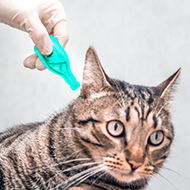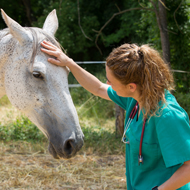HPAI has been confirmed in brown skuas.
British Antarctic Survey (BAS) staff have confirmed the first known cases of avian influenza in the Antarctic region.
The group has confirmed that the deadly disease Highly Pathogenic Avian Influenza (HPAI) has been found in the brown skua population of Bird Island, South Georgia.
The diagnosis was made after BAS staff received reports of potentially symptomatic birds, as well as unexplained avian deaths. Swabs were sent back to the UK’s Animal and Plant Health Agency laboratories in Weybridge, which confirmed positive results for HPAI H5N1.
It is believed that this latest spread is a result of birds’ natural pathways. Birds which had migrated to South America, where there are a high number of HPAI cases, are suspected to have brought the disease back on their return.
BAS and the Government of South Georgia & the South Sandwich Islands (GSGSSI) have begun work to contain the outbreak, by introducing increased biosecurity measures in their science and visitor programmes.
This has included the suspension of most fieldwork involving animal handling at BAS’ two South Georgia research stations, one of which is at Bird Island. The measures also include enhanced cleaning of laboratory clothing and equipment, and increased observation of areas with high wildlife density.
However much of their wider science programme will continue, under caution. BAS will continue with their long-term monitoring of marine predators, so they can support science and conservation work.
The current outbreak of H5N1 HPAI was identified in 2022, and has severely increased avian mortality rates in the Northern Hemisphere, the south of Africa, South America and around the Atlantic and Pacific Oceans. The H5 and H7 strains are particularly pathogenic in domestic poultry, and cause high mortality when they reach wild bird populations.
The disease is mainly spread among birds, however the current outbreak has seen some mammals become infected. This is believed to be due to predators and scavengers consuming infected birds, however the cause in marine mammals is still uncertain.
Dr Norman Ratcliffe, a seabird ecologist for British Antarctic Survey, says that they will likely see an abrupt population decline in future years, however there is little they can do to protect the brown skua.
He said: "Containment isn’t feasible as bird-to-bird transmission will be the main means of spread, but we have suspended handling of the species to eliminate any possibility of us spreading it on clothing or equipment.
"Vaccination is impractical and collecting corpses for disposal isn’t possible as we lack the facilities for incinerating high numbers of large birds and there is no consensus on whether this is a good thing to do (some contest it may spread disease by creating aerosols as birds are picked up and put in bags).
"So there is little we can do other than make observations to assess the spread and impact of the virus."
Image © Shutterstock






 The RCVS has announced a new version of its 1CPD mobile app, with enhanced features for veterinary surgeons and veterinary nurses to record their continuing professional development.
The RCVS has announced a new version of its 1CPD mobile app, with enhanced features for veterinary surgeons and veterinary nurses to record their continuing professional development.
